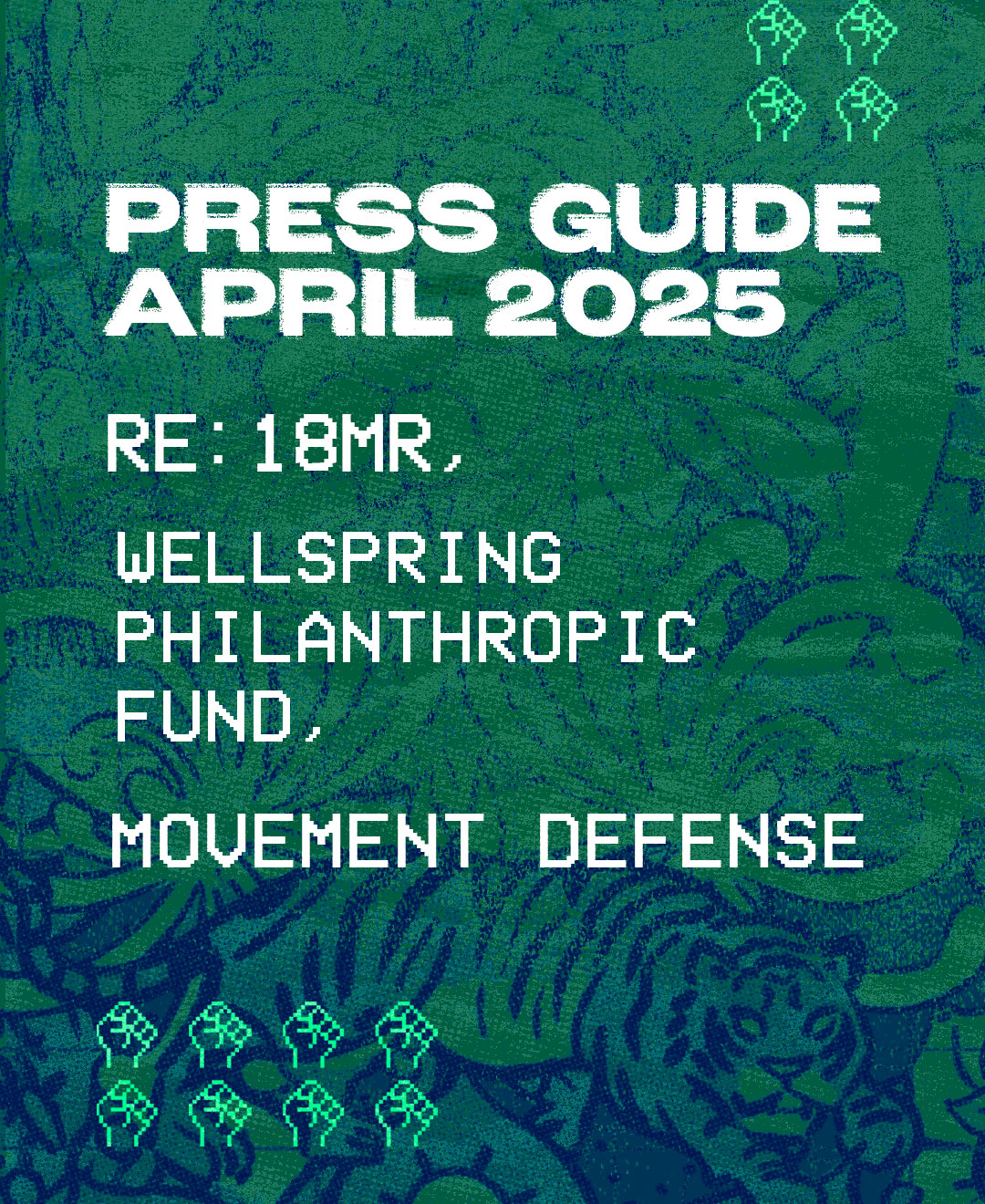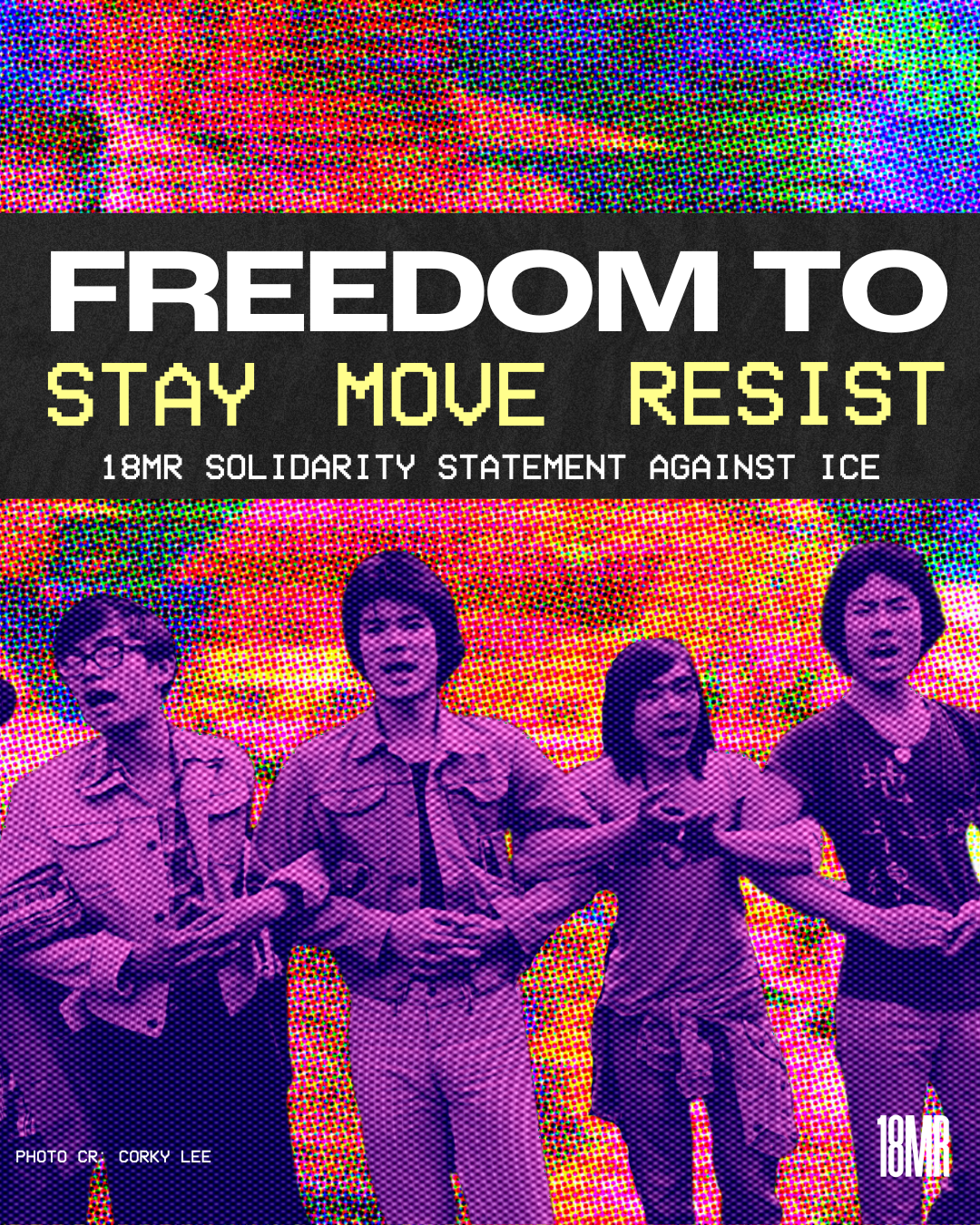sumi: You have a really amazing bio. You identify as a superfat queer bisexual non-binary sex therapist, clinical social worker, and grassroots organizer. You’re a co-owner of a radical therapy center in Philly. You’re South Asian and committed to annihilating caste. Most readers may already follow your wildly popular IG account, The Fat Sex Therapist. What do you want people to know about you and your work that might be more hidden or receives less attention?
Sonalee: I’m just turning 32. My parents are Hindu and they each have different migration stories in coming to the U.S. from India because they have really different caste backgrounds. I will often say that I’m a recovering Hindu. I’m mixed caste. I have light skin and I have some pretty privilege. Class privilege–which you can see in the clothes I wear and in my teeth because I’ve had braces. I’m documented. I was born in the U.S. so I have an American accent–which is a privilege.
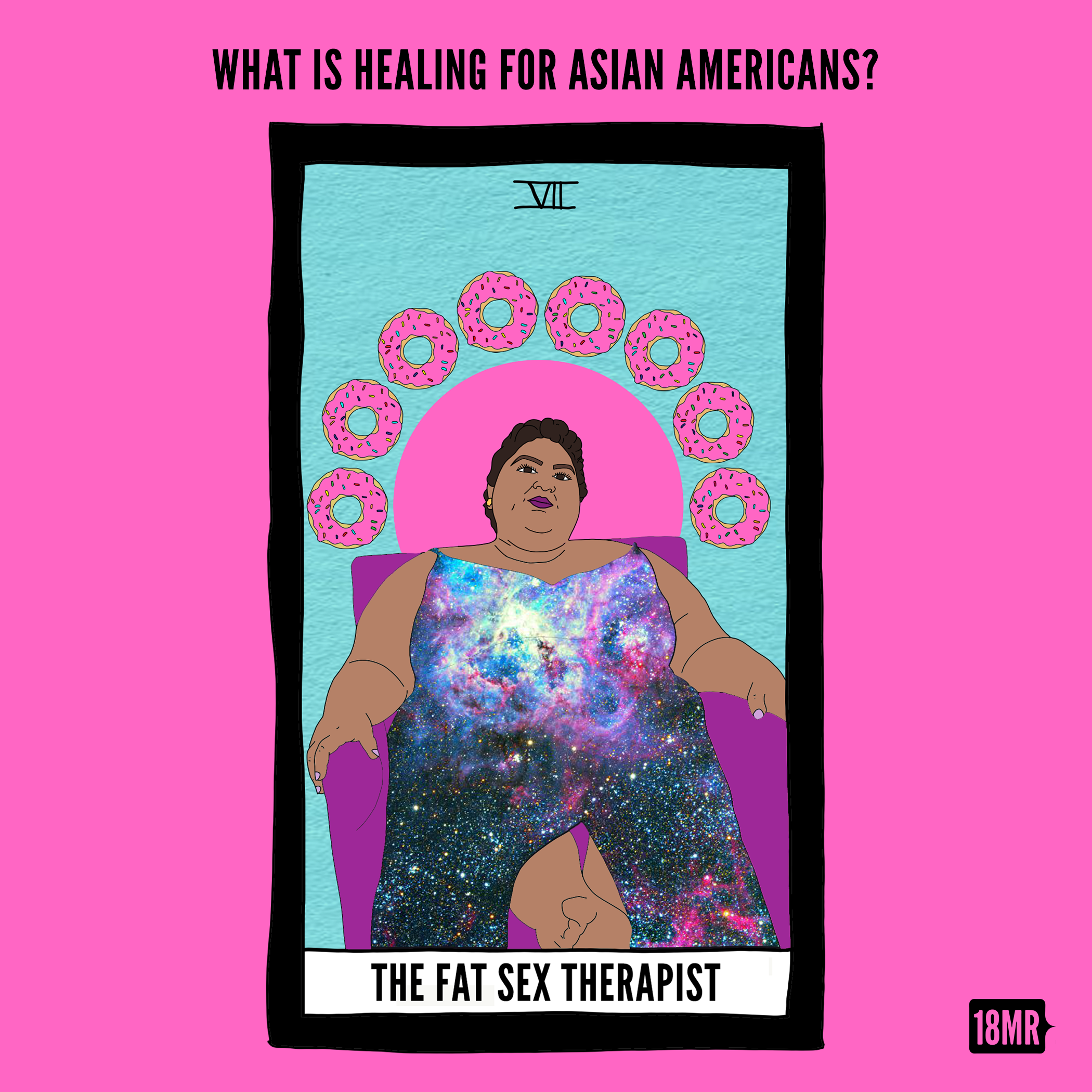
As a mixed caste person, I’m always learning about casteism and whether that’s even a term I should be claiming. I use that term because my dad is lower caste. But my mom is upper caste. The ways that she raised me and my siblings are influenced by her casteism. We learned things like not to touch our feet to books. Always accept money from your right hand and never shake someone with your left hand. I was given extra scrutiny around straightening my curly hair because I would look like a “jungli.” Jungli is a casteist slur about Adivasis and tribal people. I don’t use [that term] for any other reason than to let folks know that it’s a slur.
For me, caste abolition has looked like pushing against my family’s celebration of Diwali. In the last few years, my mom has become- it’s sad to say – a conduit of Hindu facism and very involved in the Hindu temple. My dad’s always been an atheist. We never prayed except maybe on big Hindu holidays. 2019 was the first year I skipped this big Diwali party that they throw. They’ll invite like a hundred families from the area to come to their fucking gigantic McMansion.
I had a conversation with my mom about why I didn’t go and it was really difficult for her to understand.“I’ll say over text,
‘Your Islamophobic views are backward. It’s embarrassing to have you write comments that promote Hindu facism on my Facebook page.
Your views support genocide. It’s embarrassing for me to have a mother who says things like that.’” In my personal life, sometimes caste abolition looks like a really ragged, estranged relationship with my mom and some of her family.
sumi: Caste is an oppression that’s spanned thousands of years. It bleeds into everything, including South Asian sexuality. You specialize in South Asian sexuality and decolonizing sexuality. What patterns do you see in what folks are seeking to heal?
Sonalee: It might be because I’m a sex therapist, but I happen to know a lot of South Asian folks who have vaginas and who have vaginismus. And I wonder why that is. Vaginismus involves the tightening of the vaginal canal or birth canal, so tight that it becomes painful (almost like a muscle cramp) and it makes it difficult or painful to have penetrative sex. These are not voluntary muscle contractions. Basically what’s happening is anxiety, overwhelm and panic get trapped in the body because that individual might not be moving [these emotions] out of the body.
I remind folks that we don’t all have to have penetrative sex. Not all of us even enjoy it or want to have it. That is a really simple way to decolonize sexuality. If you’re asexual, queer, trans, experienced sexual trauma, or have a disability, we might not be having penetrative sex or enjoying that. And that’s fine. That’s still real sex. That’s still real intimacy.
sumi: I love that your response to vaginismus is not like, “here’s how to change it.”
Sonalee: Being like, “here’s the cure.” No.
Disability justice teaches us we don’t use curative language because it implies abled normalcy.
Instead we use social construction theory to challenge the idea of normative sex. Let’s expand the parameters around valid sexuality so that the vastness of valid human experience can be accommodated.
sumi:How do you see different forms of sexual trauma we experience show up for us in other areas of our life (work, movement, eating)?
Sonalee: I love this question because when I’m working with a survivor and they’re also South Asian and they’re upper caste, sometimes there’s this extra pressure to treat sexual trauma like it’s this appendage that we wish we could cut off and never see again. But the way that I work with folks is actually that we have to integrate what we have experienced into the rest of our lives. Only through integrating all of these experiences, sexual trauma becomes just one constellation in the galaxy that is us.
When we have a hard time with assertive communication during sexual intimacy or romantic relationships, that shows up outside of the bedroom. Assertive communication can look like, ‘When was the last time you were tested?’ Or, ‘Hey, I’m not comfortable doing that tonight [and] this is the touch I do really want.’ It can also look like asking for the raise that we’ve been waiting for, that we need, maybe even asking earlier than the timetable we were offered. And not apologizing for that.
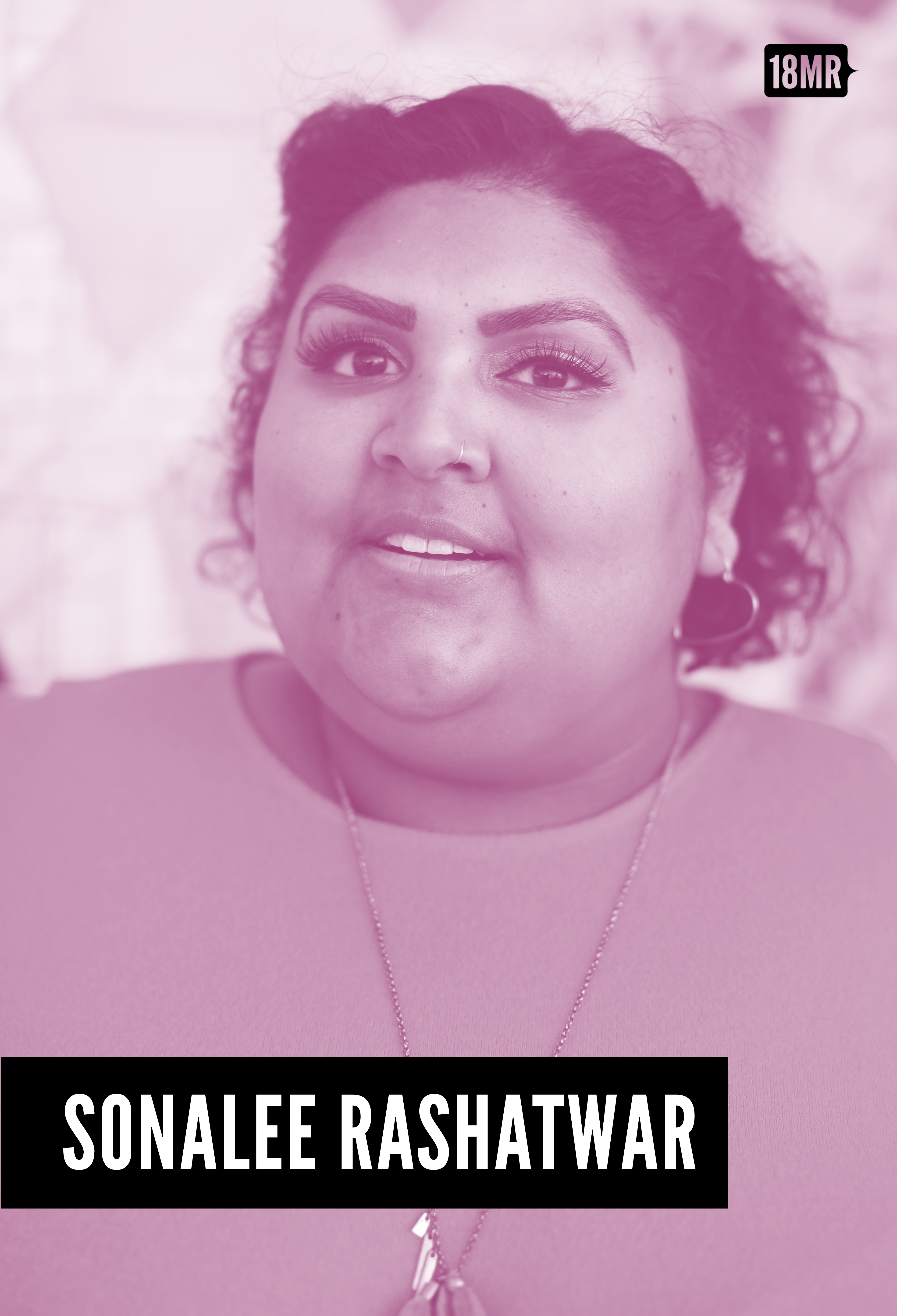
I offer folks this exercise when they’re struggling with assertive communication: Go to your coffee shop and make a really complicated beverage. There’s gonna be some foam but only from oat milk and you’re gonna have three pumps of this, and all the fixins. But you’re not allowed to apologize while ordering it. Just notice what comes up in your body. Is it anxiety? Guilt or shame about holding up the line? What is coming up for you around knowing what your needs are and feeling like you don’t deserve them to be met?
Oftentimes, people who grow up as girls have a harder time [with this], especially South Asian girls, because of what I call “good girl conditioning.” Despite our gender and often how this conditioning misgenders us,
good girl conditioning often requires this very strict obedience and co-dependency at the expense of our own identities and well-being.
sumi:You said you see it a lot with upper caste folks – the desire to cut this part of our life away. Can you slow that down and explain the connection you’re making?
Sonalee: The yoke of passing on casteist values and traditions is doubly placed on the necks of women, especially those who are gonna be molding and raising children. This is why women face a lot of backlash when they are ‘disobedient’ or ‘unruly’ when going through arranged marriages, disobeying career pathways through making choices that fall outside of the really rigid parameters that the brahminical patriarchal family has set. Women are taught that they don’t own their bodies, that their bodies are tools of social control to pass down family legacies of wealth, caste, status, power, and tradition. I think that is especially why we aspire towards this perfectionism that we see within white supremacy culture, too. That urge to cut off that experience [of sexual trauma] is often coming from, ‘This wasn’t supposed to happen to me and it ruins my perfect code of conduct.’ I want to just remove it.
sumi:You wrote the affirmation post, “Your body is an heirloom.” In it, you describe a photo of your nani cooking. You write, “she’s smiling so big you can see her double chins and glorious full fat cheekbones. just like mine, i think to myself. she looks beautiful. she looks happy, she looks healthy, and best of all she’s fat.” The whole caption is medicinal. Can you share with us the medicine of this moment for you?
Sonalee: I love the prompt of understanding my body as an heirloom. Intergenerational trauma around diet culture and thin idealism comes directly from my grandmother. But it also helps me to understand and find gratitude in why my body looks the way it does. To unlearn thin idealism, I have to imagine the reasons why it could be good that I am this fat.
My mom is someone who will never not be on a diet. She is in her late fifties and still trying to lose weight using some weird supplements that her pharmacist prescribed to her. My grandmother is in her eighties and also talks about her weight and how much she’s gained since I last saw her. How is that the most interesting thing happening in your life nani? You’re literally 86 and you’ve seen so much of the world. How is your body size the most interesting thing you can think of to share with me?
So if I were to imagine a functional reason why I would be this fat,
I imagine that I could survive partition if it were to happen again because of my fat body.
Maybe I could survive genocide. Maybe I could survive British colonialism. Maybe I could survive famine because of my body size.
sumi: Hearing you talk about both these women in your life, it feels like your work is such a conversation and even love letter to your mom and nani about what you came here to do for your family line– as contentious as it is.
What are some daily practices you want to offer Asian America that might grow our felt sense of pleasure and justice right now?
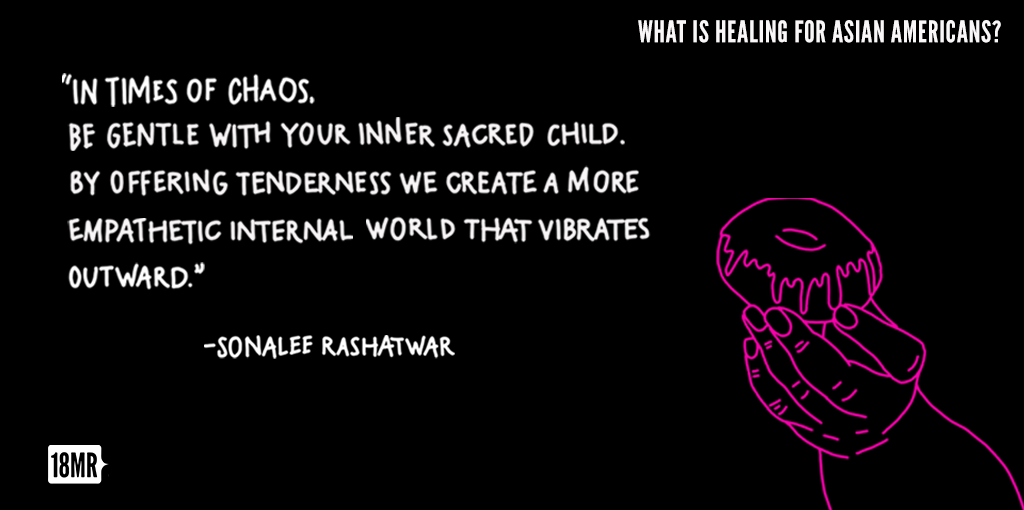
Sonalee: My opinion on this comes directly from fat liberation. Fat bodies are often treated as “before” bodies. We’re positioned in this temporal place where, ‘Once I cross that finish line, I’m gonna have confidence because my body will have changed.’ It’s a way of putting our lives on hold. If we are shitty people or assholes, change those things. Not body size.
I feel liberated when I have a wonderful, casual fuck from Tinder and I do not worry about how much my belly is shaking.
Liberation can feel like when my date cancels on me and I’m really disappointed, letting myself cry about it. Reminding myself that I’ve got really great sex toys that do the job well! When I do masterbate, I have a practice where I hug myself, kiss myself on the fattest part of both of my arms, and whisper really sweetly, “I love you Sonalee.” I use a similar voice to speak to my cat. Those words remind me I have power over my own sexual pleasure. I have the ability to offer it to myself whenever I need it.
sumi:What’s the most powerful thing about therapy?
Sonalee: To put my feelings in a container.
sumi:What would you say to your younger self?
Sonalee: That I love her a lot.
This interview is part of “WHAT IS HEALING FOR ASIAN AMERICANS?” an 18MR pilot series exploring the healing possibilities for Asian America, in the face of American exceptionalism and the model minority myth.
To learn more about Sonalee’s work, visit: www.sonaleer.com

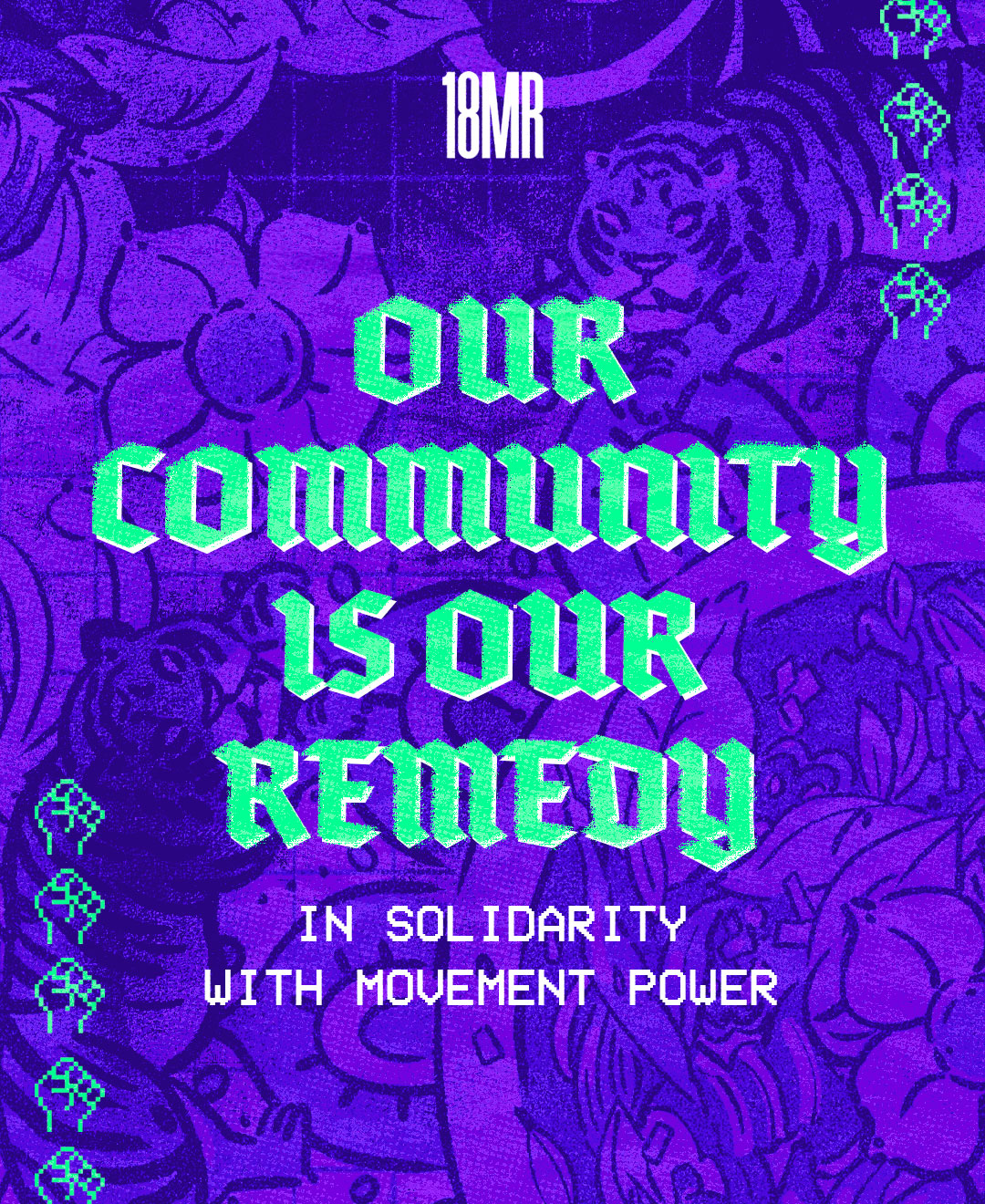
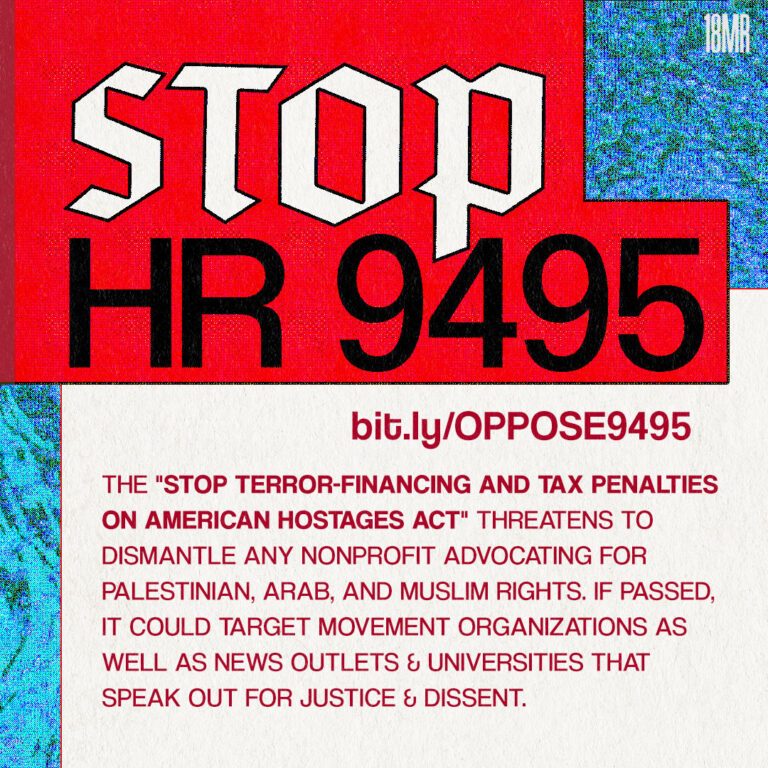
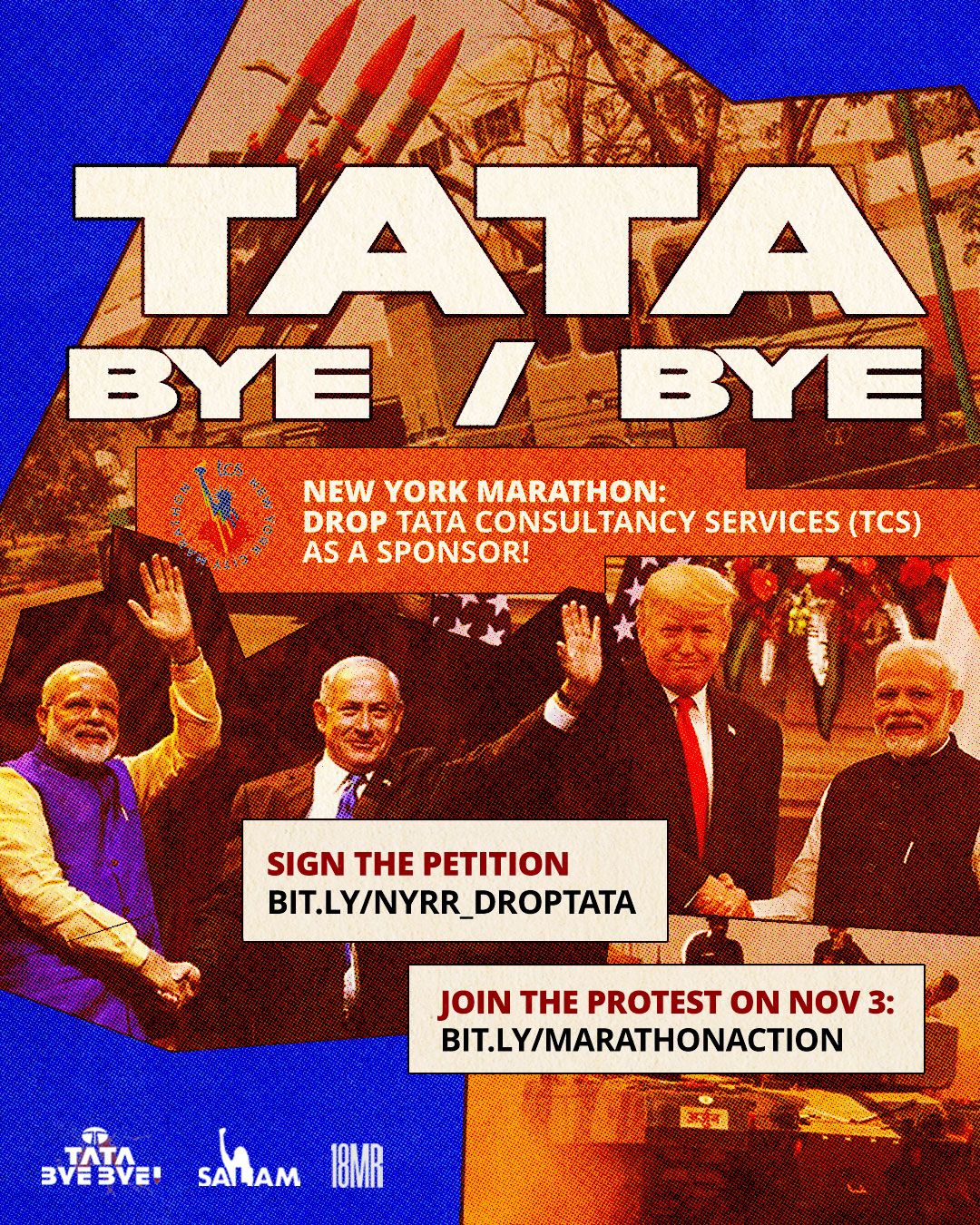

 UPDATE 11/4/24 Download our FREE ZINE for you to print out, fold and distribute to your community. Though the Marathon is over, we still must inform […]
UPDATE 11/4/24 Download our FREE ZINE for you to print out, fold and distribute to your community. Though the Marathon is over, we still must inform […]